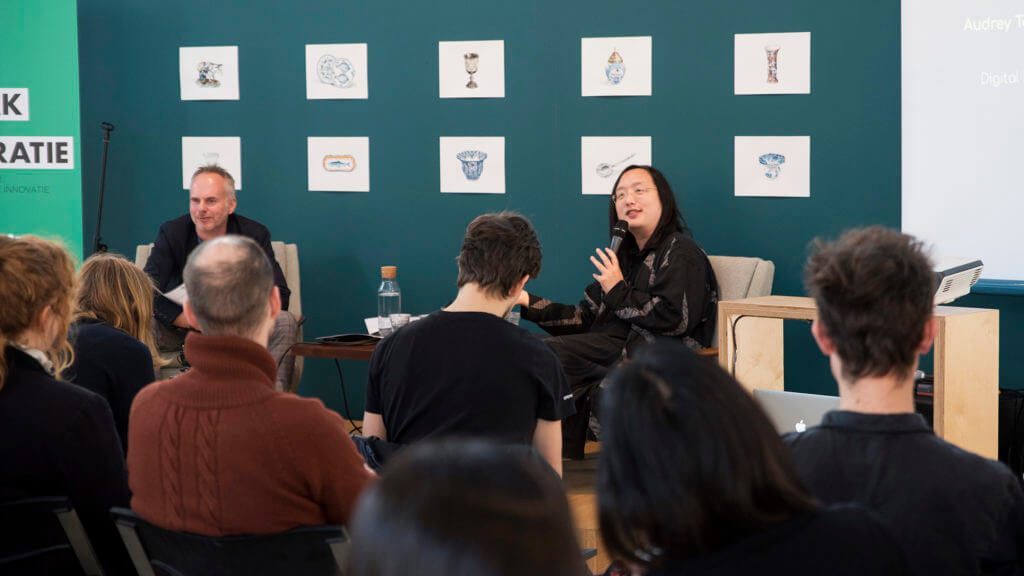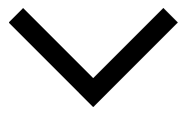Written by Chris Keulemans
Amsterdam, 20 November 2019
She chuckles. ‘I wrote my own job description. It was a poem-prayer.’ In her soft, almost hypnotizing voice, she recites:
When we see “internet of things”, let’s make it an internet of beings.
When we see “virtual reality”, let’s make it a shared reality.
When we see “machine learning”, let’s make it collaborative learning.
When we see “user experience”, let’s make it about human experience.
When we hear “the singularity is near”, let us remember: the plurality is here.
Audrey Tang has no ordinary job. She is the digital minister of Taiwan, a country where broadband is regarded as a human right. When she entered office, in 2016, she was 35: the youngest Taiwanese minister ever. And the first transgender minister in the world. By the way, she didn’t really enter office. Because there is no office to enter. One of the conditions the government agreed to was that she can work location-independent. This Wednesday afternoon, the stage of Framer Framed in Amsterdam is her office. Back home, in Taiwan’s capital city Taipe, she resides in the Social Innovation Lab, a high hall full of playful inventions, open to the park nextdoor. People are welcome to walk in whenever they choose.
‘It’s radical transparency. Everyone can visit me, for 40 minutes, to interview me or lobby for an idea. On one condition: the whole talk goes online. Not through livestream, because that would subject us to the perspective of whoever holds the camera. We publish just the textual transcript. Participants get ten working days to edit their text, if they want to, and they can choose to be anonymized.’ The same is true, Tang adds, of all the cabinet meetings, the parliamentary debates, the negotiations between civil servants and citizens.
All over the world, massive numbers of people are protesting in the streets, because they have lost trust in their governments. Confidence in elected politicians seems to be at an all-time low. Audrey Tang agreed to enter politics because she believes in the exact opposite: the real experts are the voters themselves, and they should have a role in the decision-making process. Back in 2012, the Taiwanese government produced a TV-advert aiming to inspire confidence in the struggling economy. It said: ‘Trust in us.’ This enraged young politically aware Taiwanese. It triggered what would become the Sunflower Movement. At the time, the prodigious programmer Tang was working in Silicon Valley. She flew home ‘because democracy needs me.’ The activists occupied parliament, Tang enabled the images to reach the outside world. In the 2016 elections, the government was defeated. The Democratic Progressive Party’s Tsai Ing-wen became the nation’s first female president. And the Sunflower Movement’s young revolutionaries were invited to become part of a digital project aiming to crowdsource opinion to inform government policy.
Audrey Tang says: ‘There are liberal democracies that survive just fine.’ The sweet irony in her voice is not lost on the audience. ‘They are becoming more and more irrelevant, but they are still around. But because of social media and the awareness that comes with them, what used to be sufficient – uploading millions of votes – does not give people the feeling they are really participating. The way governments act in response to rapidly changing realities is too slow. Budgets can take a year to be adapted. As a result, people start taking things into their own hands, taking direct actions. And any government that thinks it would make sense to be closer to the people can use digital means. Our number 1 principle is: trust your citizens. If we can show the whole process, including the moments when we fail, then whenever we come up with good news, people will believe us. What if we can discover things together? Whenever people complain about something, that’s great. Our response is: let’s set up a co-creation process to sort it out. That is real open government.’

Taiwan now has its own online-offline consultation process which brings together government ministries, elected representatives, scholars, experts, business leaders, civil society organizations and citizens. The process helps lawmakers implement decisions with a greater degree of legitimacy. It’s all there on https://info.vtaiwan.tw/#
Digital activists, including Tang, changed the o into an 0 on the official government website to create a shadow parliament, rethinking the role that government plays from the bottom up, pronounced ‘gov zero’, at https://g0v.tw/
And a number of successful pilot decision-making processes have been made through pol.is: ‘Town hall meetings are very expensive,’ Audrey Tang explains. ‘A lot of political capital is involved. This online tool is easier, it lowers the political cost, it can throw the conversation out there. The software clusters people with similar feelings. Collective preferences emerge gradually. It makes it possible to absorb ideas. Your avatar moves across the field, according to the questions and suggestions you encounter. You can simply agree or disagree. There is no reply button. This means that trolls, who always have more time than we do, won’t win the game. By using pol.is, we are not spending even a calory on divisive opinions. We focus on building consensus. Once that is reached we organize face to face conversations, and in the end this enables the government to introduce new regulations. The dominant social media are based on feeding the addiction to divisive opinion. This is much more social.’
Frank Kresin, Dean at the Faculty of Digital Media and Creative Industry at the Amsterdam University of Applied Sciences, is an excellent moderator. He confronts Tang with both his own questions and those the visitors have uploaded through Slido. There are doubts, of course, about how this form of collaborative governance can hold out in times of populism, privacy breaches and artificial intelligence. Audrey Tangs responses are swift and effortless. Her intelligence is way ahead of most people present, but she carries it with elegance and keeps her line of thinking accessible.
‘I call myself a poetician. Ada Loveletts, the first programmer, was the daughter of Lord Byron. She saw programming as a form of poetry. Programming, when it enters large systems, uses language in the same way that poetry does. It’s all about finding the light bulb in the place where different interests from society, governance, business and environment converge. This is the first diamond of discovery.’
Does her approach meet resistance from ministries and other government institutions? ‘We are the resistance. Using open source, open data, radical transparency, going out to the people. Why would the other ministries oppose that? Nobody in government would argue for more risk, longer hours, less credibility. Working towards more credibility means less work and less risk. It is impossible for government to feel threatened. One must learn the art of working out loud. Ministries should be able to know about the working of each other. By publishing all their transcripts online, they stay informed across all domains of government.’
Educating people to take part and grow trust in government as a collaborative, online-offline effort is essential to her work. But is it strong enough to survive the aggressive populism of our times? ‘I am fine with inclusive populism. I have always considered all sentient beings as part of society. So I have no problem with including people under 18, but also rivers, mountains and fireflies as citizens with a voice that should be heard. Trusting the people counters the othering of exclusive populism. It is much harder to fall into tribalism when you have experienced the process of consensus building.’
Having grown up to discover, build and re-shape the internet as a force for collaborative progress, she deeply believes in the resilience of digital democracy. ‘If we can delineate the core of the internet, we can survive totalitarianism and fascism. But if we don’t take care, the internet will balkanize into many intranets. We should guard it very carefully. We have to keep defining what is the inter in internet.’
She leans back in her chair, visibly enjoying the occasion to share what keeps her going. ‘The internet is never done. If you post something that is perfect, everyone will like it, but there will be no interaction. But when you post the imperfect, when you share your mistakes, people will start editing and co-creating. Let me finish by quoting the Canadian poet and singer Leonard Cohen: There is a crack in everything, that’s how the light gets in.’



